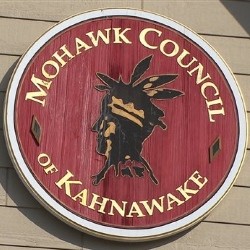First Nations Opposes Canadian Law Blocking iGaming Sites

Online gambling is legal in Quebec, but the industry is not set up as a free market open to competition. Instead, the only legal company permitted to offer its products in Quebec is Espacejeux, a site that is run by provincial Canadian lottery operator Loto-Québec. Although Canadian law prohibits monopolies like the one mentioned from setting up in Quebec, the province’s government has continued to maintain the status quo, and recently took things one step further by announcing its intent to block access to all illegal iGaming operators providing services in Quebec.
In the meantime, Indigenous groups have vehemently spoken out against Bill 74, and are currently gearing up to oppose the unprecedented new law.
About the New Law
In 2015, Carlos Letiäo, the Finance Minister of Quebec, unveiled the province’s 2015 to 2016 budget. Contained in the document were recommended changes to the province’s Consumer Protection Act, which includes its laws governing gambling.
One of the biggest recommended changes was a clause that would require all Internet Service Providers in Quebec to block iGaming sites that were not licensed, in effect leaving Espacejeux as the only online gambling site. Although the Finance Minister framed the changes as being for consumer protection, skeptics countered that the motivation was money, as the changes would bring an estimated $13.5 million in revenue to Quebec during the first year after institution, and $27 million annually every year after.
The proposed changes successfully made their way through the Quebec government as Bill 74 and were signed into law on May 17, 2016. A delay was put in place to give Internet Service Providers 6 months before they would need to block access to illegal iGaming sites. Those who fail to comply could be assessed fines of up to $100,000 per day.
Arguments Over Legality
As previously mentioned, many critics of the new Quebec gaming law feel that the move is illegal because it sets up a provincial monopoly, and there is precedence in the Canadian justice system to argue the point.
The Canadian Supreme Court previously ruled against a Quebec municipality in a dispute with Rogers Communications, a telecom provider in Canada. When Rogers Communications tried to build a cell tower on property that they leased from the municipality, the town in question, Châteauguay, refused saying that it would be an eyesore. Ultimately, the court ruled that the municipality’s interests did not have anything to do with visual aesthetics or the overall good of the town, and subsequently required Châteauguay to permit Rogers Communications to build their tower.
Many people believe that the situation with Espacejeux and illegal online gaming results could go the same way if challenged in Canadian courts. It’s possible that justices would find that the government’s primary motivation was financial and not a matter of consumer protection.
At the present time, the Canadian Wireless Telecommunications Association is investigating the law to determine if the industry has any grounds to argue that the law will be damaging to Internet Service Providers. While it’s unclear whether or not the law will be upheld, it is certain that the law will continue to prove controversial among the telecommunications industry and iGaming advocates.
Indigenous Groups Oppose Move
Following its passage, neutrality proponents have spoken out on the issue, including online gambling law expert Michael Geist, who earlier this year told the Canadian Press (CP):
“I think the (Quebec) government doesn’t understand the Internet and frankly doesn’t understand the importance of an open and free Internet. Quebec is.. seeking to censor the Internet for its own commercial gain by ordering Internet providers to block access to any unregulated sites.”
Indigenous groups have also weighed in by claiming that Bill 74 violates their territorial rights, and are now preparing to fight the controversial new law. The Kahnawake Gaming Commission has been managing its own online gambling industry since 1996, and currently licenses and regulates around 90 websites. Commenting recently, Kahnawake Council Chief Gina Deer said that she was disappointed the government took the controversial decision without consulting the First Nations, and in particular Kahnawake, warning:
“We’ll see what happens after the summer. But if it’s not challenged by other groups, I’ll be surprised. It infringes on the rights of every individual, and gaming is probably going to be the first thing [the government] will regulate. Who knows where it will come to.”









